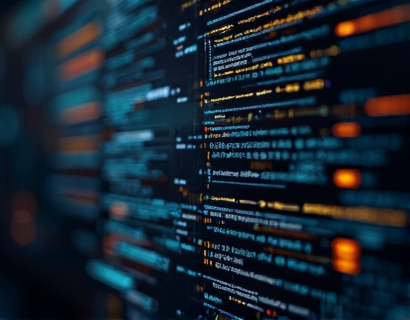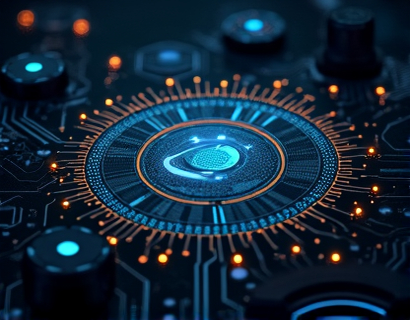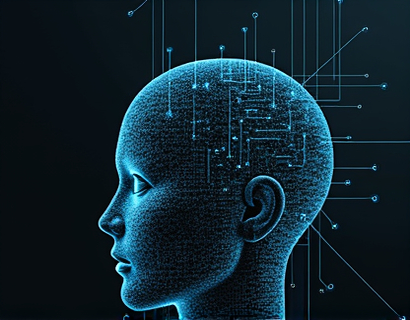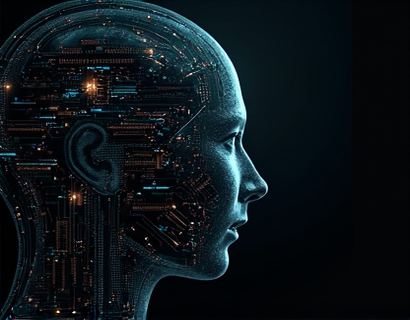AI-Driven Poker Education: Unlocking Success for All Skill Levels
In the world of poker, the intersection of skill, strategy, and psychology creates a complex game that challenges even the most seasoned players. For newcomers and experienced gamers alike, the path to mastering poker can be daunting. However, the advent of AI-driven learning tools is revolutionizing the way players of all levels approach the game. This article delves into how intelligent learning platforms are transforming poker education, offering a comprehensive range of resources that cater to everyone from beginners to experts.
Understanding AI-Driven Poker Education
AI-driven poker education leverages advanced algorithms and machine learning to provide personalized learning experiences. These platforms analyze a player's gameplay, identifying strengths and weaknesses, and tailor educational content accordingly. The goal is to create a dynamic learning environment that adapts to the player's progress, ensuring continuous improvement and engagement.
The integration of AI in poker education is not just about providing tips and strategies. It's about creating a holistic learning experience that encompasses various aspects of the game, from basic rules and hand rankings to advanced psychological tactics and decision-making under pressure. By harnessing the power of AI, these platforms can offer insights and insights that human instructors might overlook or take too long to recognize.
Comprehensive Educational Resources
One of the most significant advantages of AI-driven poker education is the breadth and depth of educational resources available. These platforms offer a structured curriculum that guides players through the fundamentals and beyond. Here’s a breakdown of the types of content typically provided:
- Basic Concepts: For newcomers, understanding the rules of poker, hand rankings, and game variants is crucial. AI-driven platforms start with these basics, ensuring that players have a solid foundation before moving on to more complex topics.
- Strategy Guides: As players progress, they need to learn specific strategies for different situations and opponents. AI can provide detailed guides on positioning, betting strategies, and reading opponents, using data-driven insights to enhance the learning experience.
- Video Tutorials: Visual learning is powerful, and AI-driven platforms often include a library of high-quality video tutorials. These videos cover a wide range of topics, from basic strategy to advanced techniques, and are designed to be both informative and engaging.
- Interactive Simulators: Practice makes perfect, and AI-driven simulators allow players to apply what they've learned in a risk-free environment. These simulators can mimic real-game scenarios, providing immediate feedback and helping players refine their skills.
- Community Forums: Learning from others is invaluable. AI-driven platforms often feature community forums where players can discuss strategies, share experiences, and ask questions. AI can even facilitate these discussions by suggesting relevant topics and moderating content to maintain a high standard of interaction.
Personalized Learning Paths
One of the most innovative aspects of AI-driven poker education is the ability to create personalized learning paths. By continuously analyzing a player's performance, these platforms can identify areas that need improvement and recommend specific courses of action. This personalized approach ensures that each player receives the exact content they need to progress at their own pace.
For example, a beginner who struggles with betting decisions might receive a series of lessons and exercises focused on pot odds, risk management, and bluffing. As they improve, the platform can introduce more complex topics such as dynamic positioning and psychological tactics. This tailored approach not only keeps players engaged but also accelerates their learning curve.
Advanced Analytics and Feedback
AI-driven platforms go beyond basic instruction by providing advanced analytics and real-time feedback. This feature is particularly beneficial for intermediate and advanced players who are looking to refine their game. Here’s how it works:
1. Performance Tracking: The platform tracks key metrics such as win rate, expected value, and hand frequency. These metrics provide a comprehensive overview of a player's performance, highlighting areas of strength and weakness.
2. Detailed Hand Reviews: After each session, players receive detailed hand reviews that break down their decisions and suggest alternative actions. AI algorithms analyze the hands, considering factors like board texture, opponent behavior, and optimal strategy, to provide actionable insights.
3. Customized Recommendations: Based on the analytics, the platform generates customized recommendations for improvement. These might include specific strategies to adopt, common mistakes to avoid, and areas to focus on during practice sessions.
4. Progress Monitoring: Players can monitor their progress over time, seeing how their skills improve with each session. This visual feedback is motivating and helps maintain a positive learning trajectory.
Psychological Insights and Mental Training
Poker is as much a mental game as it is a strategic one. AI-driven education platforms recognize the importance of psychological factors in achieving success at the table. Here’s how they incorporate mental training into the learning experience:
1. Mindfulness and Focus: Lessons on mindfulness and focus techniques help players manage stress and maintain concentration during long sessions. AI can provide guided meditations and exercises tailored to the demands of poker.
2. Emotional Control: Understanding and managing emotions is crucial in poker. The platform might offer modules on recognizing and controlling emotional responses, such as frustration or excitement, to make better decisions.
3. Opponent Psychology: AI-driven tools can simulate different opponent types and behaviors, helping players develop the ability to read and adapt to various psychological profiles. This includes recognizing tell patterns, betting tendencies, and bluffing strategies.
4. Decision-Making Under Pressure: Simulated high-stakes scenarios allow players to practice making tough decisions under pressure. AI can adjust the difficulty level based on the player's performance, ensuring a challenging yet manageable experience.
Community and Support
While AI-driven tools provide a wealth of educational resources, the poker community remains a vital component of the learning process. AI-driven platforms often include features that foster a supportive and interactive community:
1. Mentorship Programs: Experienced players can be matched with AI-driven platforms to mentor less experienced players. This peer-to-peer learning combines the benefits of AI analysis with the personal touch of human guidance.
2. Live Streams and Tournaments: Watching professional games and participating in live tournaments can provide valuable learning opportunities. AI can enhance these experiences by offering real-time analysis and commentary, helping players learn from top players in action.
3. Feedback and Discussion: AI-moderated forums and chat rooms allow players to seek feedback, share insights, and discuss strategies. AI can facilitate these interactions by suggesting relevant topics and ensuring a respectful and productive environment.
Conclusion
AI-driven poker education represents a significant leap forward in how players of all skill levels approach the game. By providing personalized learning paths, advanced analytics, psychological insights, and a supportive community, these platforms empower players to reach their full potential. Whether you're just starting out or looking to refine your strategies, AI-driven tools offer a comprehensive and dynamic learning experience that can transform your poker journey. Embrace the future of poker education and unlock your success at the tables.










































